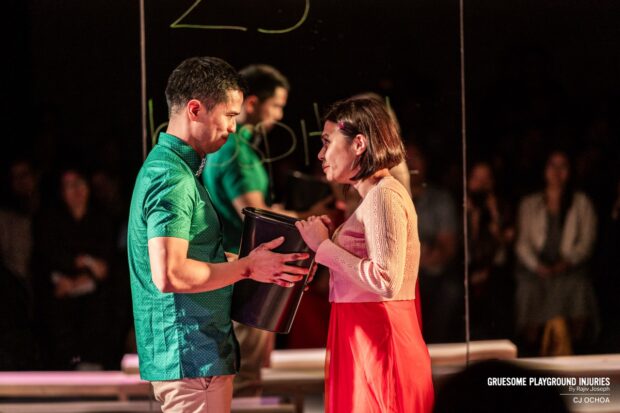The past two weeks we have been conducting the integration session for the public school principals, supervisors and teachers in our formation program. As we “returned” to where we started, the main goal of the formation program, which is to inspire a renewal and reform movement in their schools, it was awesome to see how all fell into place. The wholeness slowly emerged.
As we approached the end of this phase of the program, a mood of hope marked the season’s final activity.
Returning to where we started—this is where we regain our integrity, our wholeness. This is the message of Jesus in this Sunday’s gospel, as we see him begin his ministry: “This is the time of fulfillment. The Kingdom of God is at hand. Repent and believe in the gospel.”
It is a good message, a good reflection in the New Year, to contemplate what lies ahead—individually, in our families, our communities, our country, our world.
The call that seems to be the first in the order of things is to repent—and to believe.
As written in our previous article, the Filipino term for repentance is pagbabalik-loob; a return to our kalooban, our core. As Thomas Merton puts it: “There is, in all things, a hidden wholeness.”
I like the Filipino term because it clearly implies that our kalooban, our core, is fundamentally good. Discovering our kalooban, our hidden wholeness is discovering—or rediscovering—our fundamental goodness; believing in ourselves again or maybe believing in ourselves for the first time.
Fundamental goodness
In my work with young people as teacher and educator, I’ve always been amazed by how this simple realization of one’s fundamental goodness made a big difference in the life of a young person. Then, as I focused more on the formation of adults the past seven years, I was even more amazed to see that across generations, this simple realization had an equally powerful effect on adults.
In 1985, I attended the graduation at Ateneo de Manila College. It was the first batch of students I had taught in senior year high school.
After the ceremony, one of my former students sought me out in the crowd. He ran up to me and embraced me. Then he proudly said, “Sir, ito ’yung ayaw nilang tanggapin noon! Tapos na!” (“Sir, this is the person they did not want to accept earlier! I made it!”)
There had been some confusion in his admission into the college in 1981. I had to appeal to then admission and aid director, Fr. Bill Kreutz, SJ. I explained his case. Fr. Bill, in his usual kind, compassionate and fair way of handling things, readily admitted him after hearing his case.
I’d like to think my student sought me out that graduation night because he remembered how he had been given a chance four years earlier; it was an act of gratitude. He made the most of the opportunity given him when people believed in him.
People helping him believe in his fundamental goodness inspired him not only to finish college, but also to do well in life and shine in his career.
He now works as dean—or the equivalent of it—in the international training center of a leading global hotel chain. He is based in China with his family, living a good and meaningful life. Every time I refer to him a young man or woman starting out in the hotel industry, particularly in his field, he warmly and generously welcomes and guides them.
“Repent,” “magbalik-loob,” return to the inner core, the fundamental goodness, and “believe in the gospel.”
Believe that life is good. Believe that you and others are fundamentally good people.
Again, the Filipino term for believing or faith is a good starting point for reflection, manampalataya. Mag-taya, to offer one’s self, to invest one’s self is repentance that leads to believing. You believe and invest in others and in the world, believing in its fundamental goodness and committing to make it better.
Back to the good
This is the invitation to us during the new year, the beginning of ordinary time, the third Sunday in ordinary time. Can we proclaim once more—“Repent and believe in the gospel.”
Now, in a special way, we are issued the call to lead people back to the core, to where we started, our fundamental goodness.
This is a call—a challenge—for all leaders and/or those in a position to influence people. Can you lead people back to that core, that hidden wholeness where they will rediscover their fundamental goodness and believe they can make their life and our world better?
In this gospel, we also see that after this basic message or proclamation of his mission, Jesus chooses his disciples, the core of the community he formed, nurtured and entrusted with his work and mission. From the beginning of his mission he had prepared the community to whom he would entrust this.
This is one of the reasons, I believe, Jesus was a good leader. He believed so much in his message, his work and mission so that from the beginning he prepared his exit plan. He set it up so that the message, the work and mission can and will be continued by others.
The first community who heard and accepted his message—“This is the time of fulfillment. The Kingdom of God is at hand. Repent and believe in the gospel.”—not only did it accept, but also spread it to the ends of the earth. The message is “eternal” and in need of constant renewal.














































